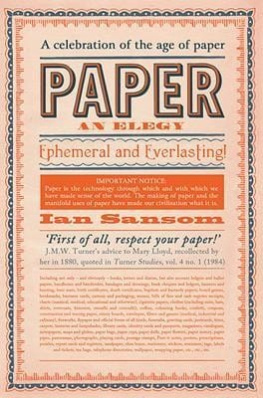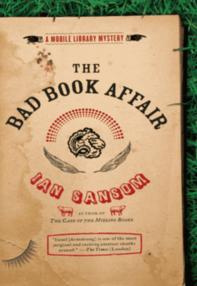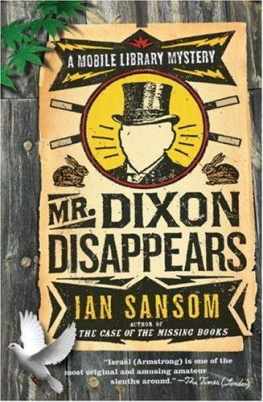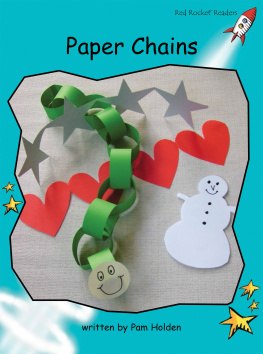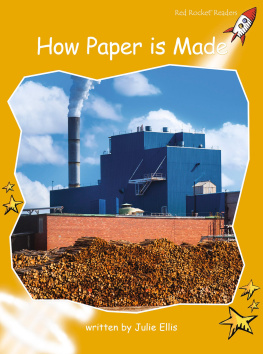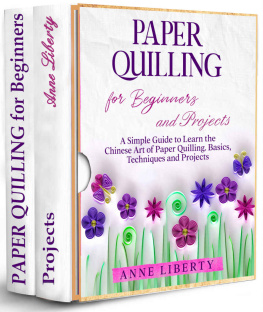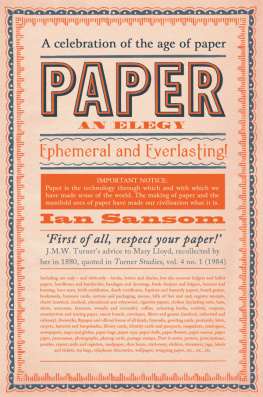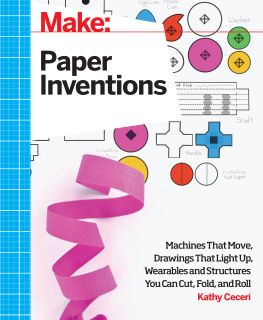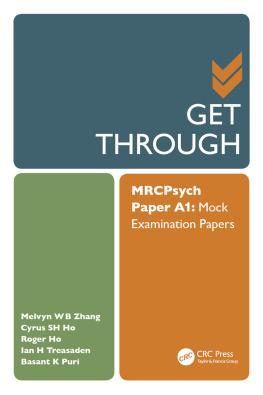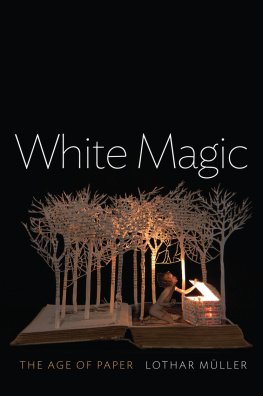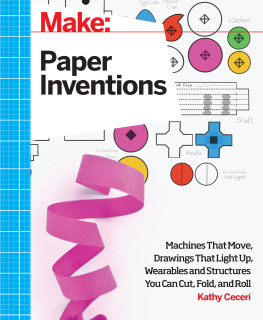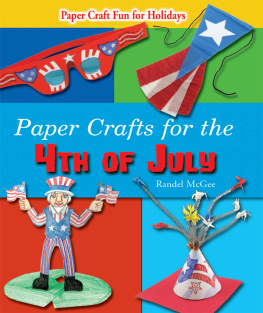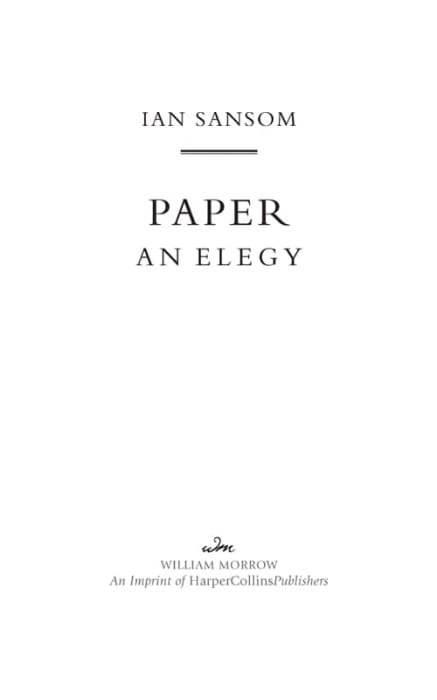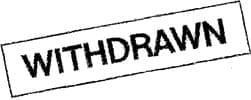For Nicholas and George,
with thanks for Christmas lunch
CONTENTS
The old book collectors pulse was almost visible, throbbing in his wrist and temples. His voice became deeper as he held the book up to his eyes so he could read more clearly. His expression was radiant.
A magnificent book, confirmed Corso, dragging on his cigarette.
Its more than that. Feel the paper.
A RTURO P REZ -R EVERTE , The Club Dumas (1993)
Bookplate by Aubrey Beardsley The Bridgeman Art Library Ltd.
First of all, respect your paper!
J.M.W. T URNER s advice to Mary Lloyd, recollected by her in 1880, quoted in Turner Studies , vol. 4, no. 1 (1984)
Welcome to the Paper Museum. The museum is dedicated to the preservation and study of paper and paper products, including not onlyand obviouslybooks, letters and diaries, but also account ledgers and ballot papers, bandboxes and banderoles, bandages and dressings, bank checks and ledgers, banners and bunting, beer mats, birth certificates, death certificates, baptism and bastardy papers, board games, bookmarks, business cards, cartons and packaging, menus, cash register receipts, charts (nautical, medical, educational and otherwise), cigarette papers, clothes (including suits, hats, shirts, overcoats, kimonos, overalls and coveralls), coffins, coloring books, confetti, coupons, construction and tracing paper, emery boards, envelopes, filters and gauzes (medical, industrial and culinary), fireworks, flypaper and official forms of all kinds, funeralia, greeting cards, postcards, kites, carpets, lanterns and lampshades, library cards, identity cards and passports, magazines, catalogues, newspapers, maps and globes, paper bags, paper cups, paper dolls, paper flowers, paper money, paper pipes, panoramas, photographs, playing cards, postage stamps, Post-it notes, posters, prescriptions, puzzles, report cards and registers, sandpaper, shoe boxes, stationery, stickers, streamers, tags, labels and tickets, tea bags, telephone directories, wallpaper, wrapping paper, etc., etc., etc.
We live in a paper world. Without paper our lives would be unimaginable. Or almost unimaginable. We can, of course, imagine it, as we can imagine anything, for the great writers and artists and musicians have taught us to imagine, in their books, and their paintings, and through their music. We have been trained by them, educated by them on paper, and through paper, and by paper, to imagine. So its easy to imagine a world without paper. Like being dead, or never having been born.
We arise, wash, and go to the restroomthough without toilet paper. We enjoy a bowl of cereal, unpackaged, naturally. Tea: no bags. Coffee: no filter. We do not buy a newspaper on our way to the train station: there are no newspapers to buy. And besides, we have no money. Well, coins maybe. Bags of coins. Or cowrie shells. But we buy no lottery ticket. And no chewing gum: no wrapper. No ticket for the trainwhich, anyway, has no train schedule. (Well assume, just for fun, that there is a train, and a train station, and a house, and an office or workplace to go toalthough without plans and schedules and surveys and backs-of-envelopes and blueprints and patents and maps and graphs, all of this is of course highly unlikely; not impossible, but about as likely as you being able to read these words without ever having read or written anything on a piece of paper.) We certainly shall not gaze at advertisements on the train, or at billboards. Nor buy a cup of takeout coffee, in a takeout coffee cup, protected by a takeout coffee-cup sleeve, and our nonexistent loyalty card can remain forever lost, forgotten and unstamped. Nor do we post our mail: there is no post office. So no Amazon packages. Nor do we spend our days printing out emails, filing papers in folders, filling in forms, surrounded by familiar wallpaper and family photos, sticking up Post-it notes, or writing documents on screen and filing them in folders. Nor do we read a magazine or a paperback at lunchtime, while eating a sandwich neither wrapped nor carried in paper, our greasy hands untouched by a paper napkin. At no point in the afternoon do we file our nails with an emery board, fix our makeup, or blow our nose with a tissue. No cupcake tin liners, no cake boxes. No business cards. No bills. No banks. No building societies. No insurance companies. A little industry, perhaps, a little government. Maybe some law and order. But certainly we smoke no cigarettes, wipe no bottoms with a wet wipe, wrap no presents, nor mark, correct or assist with any homework, read no menus, send no Christmas cards, pull no crackers, light no fireworks
Imagine for a moment that paper were to disappear. Would anything be lost? Everything would be lost.
We have been using paper for around two thousand years. What began in China as a rare and precious material and commodity eventually spread and spread, like alarm and disease, and dreams and despondency, until the nineteenth century, when papermaking machines replaced hand production. Then things really took off, and the truly phantasmagoric age of paper began. The average office employee in the West now uses over ten thousand sheets of paper per year. If you live in America you consume, all told, about 750 lbs. of paper per yearwhich is about the weight of seven bags of cement, or 150 bags of sugarmaybe more. If paper did not exist, then someone would have to invent itGutenberg, probably, because what use would his movable type have been without it? Paper is the ultimate man-made material. Its cheap, light, durable, and can be folded and cut and bent and twisted and lacquered and woven and waterproofed so that it can be used in almost any way and for anything. What, boats? Yes. Clothes? Yes. Furniture? Yes. Houses? Yes. Weapons? Yes. Games, puzzles and toys? Yes. The wheels on high-speed trains? Yes. And we shall come to them all later.
But these are only papers more prosaic uses. In Japan, cut as streamers, paper consecrates sacred places. In India, during religious festivals, cut paper, sanjih , is placed on the floor to produce rangoli , the beautiful decorative shapes and patterns that welcome the Hindu deities. In Switzerland, elaborate paper cuts are used to ratify legal documents. In China, at a Taoist or Buddhist funeral, sacred papers are burned to ease the passage of the dead through to the other world. And in the stories of Sherlock Holmes, criminals are caught with the simple application of brain to paper. I have some papers here, said my friend Sherlock Holmes as we sat one winters night on either side of the fire, which I really think, Watson, that it would be worth your while to glance over (The Gloria Scott ). At a glance, and just for fun, here is Holmes on paper: in A Scandal in Bohemia he establishes, with the aid of his Continental Gazetteer , that a crucial piece of paper was produced in Bohemia; in The Sign of Four he even more quickly deduces, without assistance, that a piece of paper is of native Indian manufacture; his monographs on technical subjects include not only the celebrated Practical Handbook of Bee Culture, Upon the Distinction Between the Ashes of the Various Tobaccos and contributions to the study of tattooing, ears, the form of the hand, the tracing of footsteps and the polyphonic motets of Lassus, but also a trifling monograph upon the subject of secret writings, and one upon the dating of documents; and in The Stockbrokers Clerk he is able to tell Watsons state of health from a scrap of paper:

